Imagine a world where you cannot throw your waste? A world everything you buy or throw is your property and can be traced with the help of current blockchain technologies, a system in which a record of waste transactions is maintained in a digital network. A world without centralized waste management… Individuals have an equal role to deal with their waste, in other words, their properties. What would one do to continue their life in such a reality? In this alternative reality, the importance of decentralization and shared responsibility is inevitable to ensure local management.
The world generates 2.01 billion tonnes of municipal solid waste annually with at least 33 percent of that not managed in an environmentally safe manner. Thousands of people are dying each year in developing countries because of diseases related to mismanaged waste. While mismanaged waste has been a problem for decades, the growth of consumption habits is not helping. Relatively positive method, recycling, cannot keep up with the production rate of waste . This inability to keep up leads to another method, the incineration plants, so called “waste-to-energy plants”. These incinerator plants give the impression that there is no problem, and also encourage consumption by normalizing the situation with producing energy. The search for profit of the huge facilities established for these management methods or the discarding of unmanageable parts by sending them to other countries leads to the global travel of waste which turns into a trade. Is the problem of waste, which is ignored by being incinerated in some part of the world or sent to other countries, is considered to be fully resolved? As Istanbullers we have faced waste based problems such as garbage strikes in 1992, the streets of Istanbul turned into mountains of germs in just 14 days, and in 1993, the garbage that swallowed the nearby houses was like lava, caused by the garbage explosion.
This tragic event took 29 people’s lives which made a breaking point for the development of the waste management system. What if it would change differently? What if it couldn't be managed at all? Would this change change the waste itself?
This is a speculative project that problematizes the presence of the term “waste”.
In this project, “waste” gets a meaning which refers to a more cyclic approach. This new approach can help to form solidarity on a neighborhood scale due to the difficulty of individual property management.
The strongest aspect of the project is to make everybody realize that they have the responsibility of the current waste issue by limiting the amount of waste that every individual can dispose. But this comes with some consequences. The changing system will directly affect the consumption habits of individuals. In a world where every purchase is a property will make individuals think twice before getting anything. This will bring the development of a different production culture which focuses on the cyclic process where every output is an input for another. In such a world the struggle is real, it will not be easy to handle alone. Developments to ensure the circulation of the properties will create a social infrastructure based on solidarity in the neighborhood. Neighbors involved in alternative productions in cooperation will create a new network and business lines. The perspective of seeing potential new products in each belonging will transform each individual into a designer.
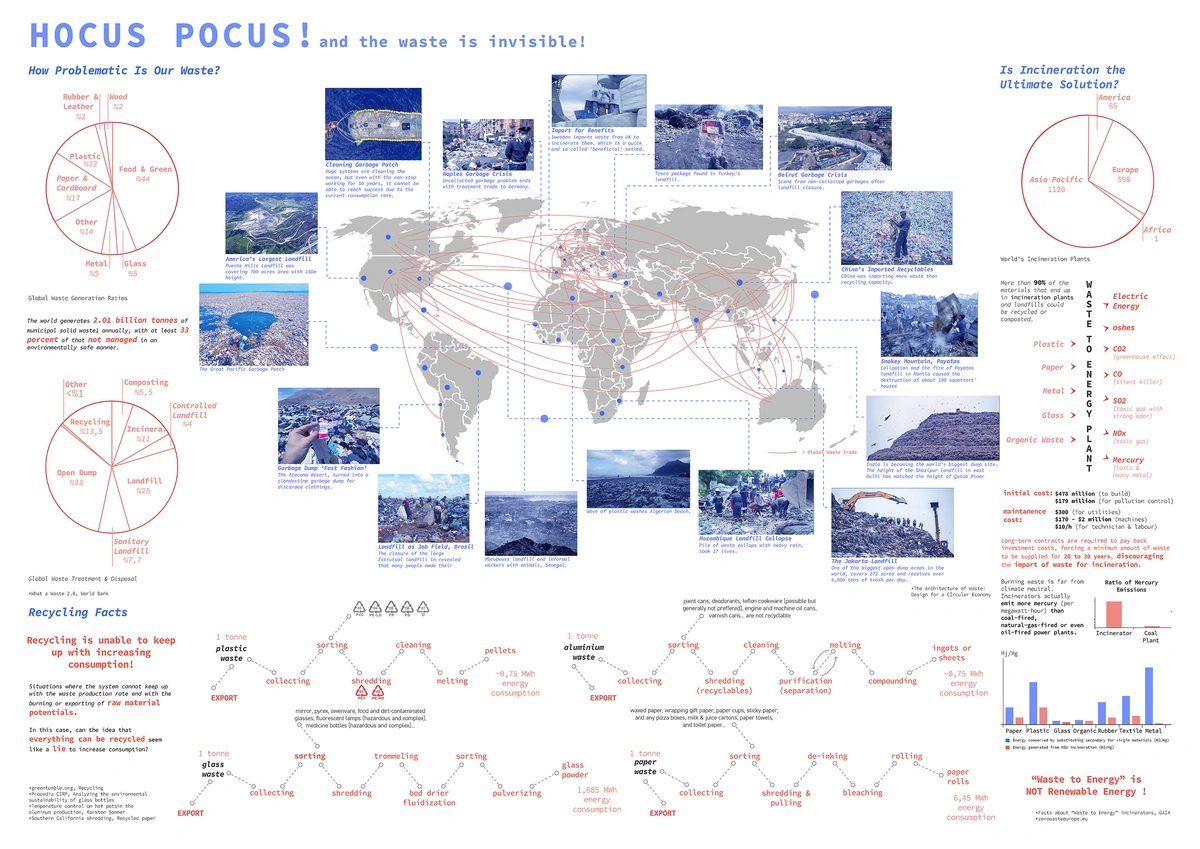
Presentation of the current global waste issue.
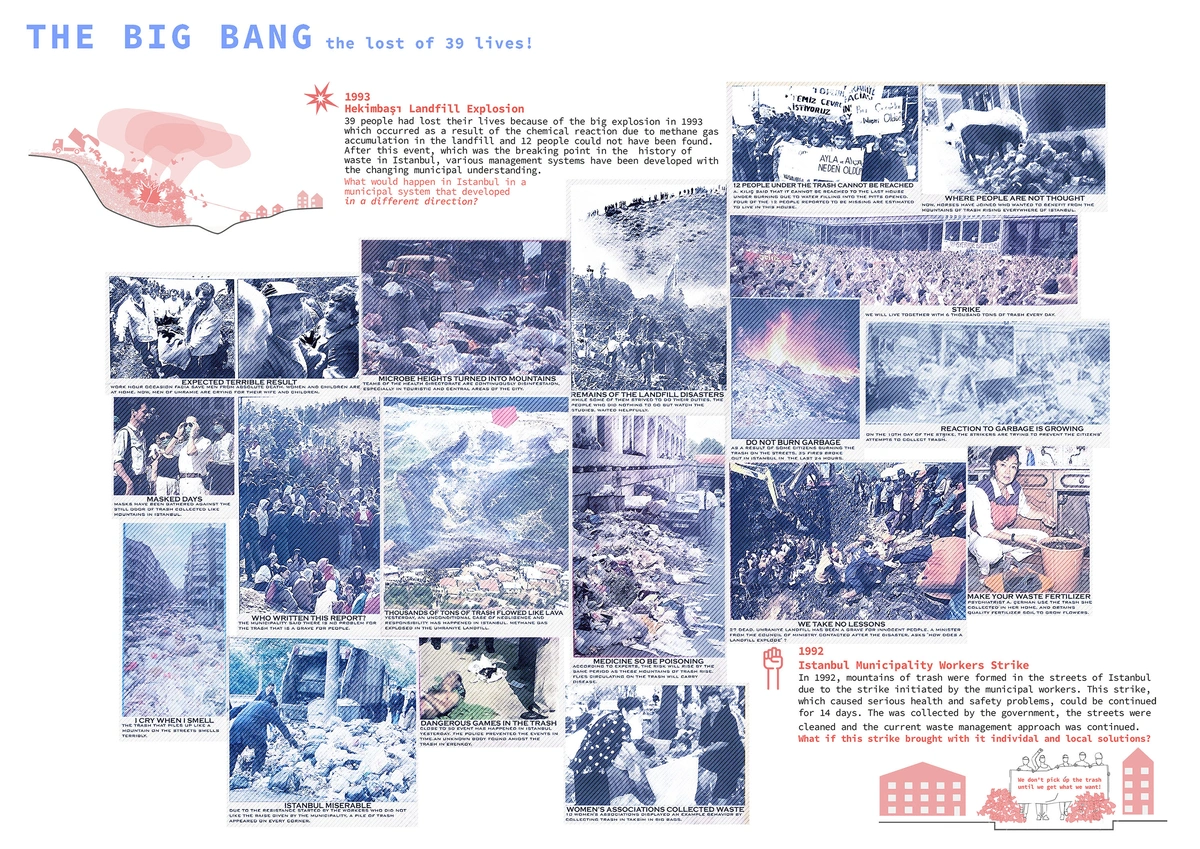
Tragic disasters from a local perspective.
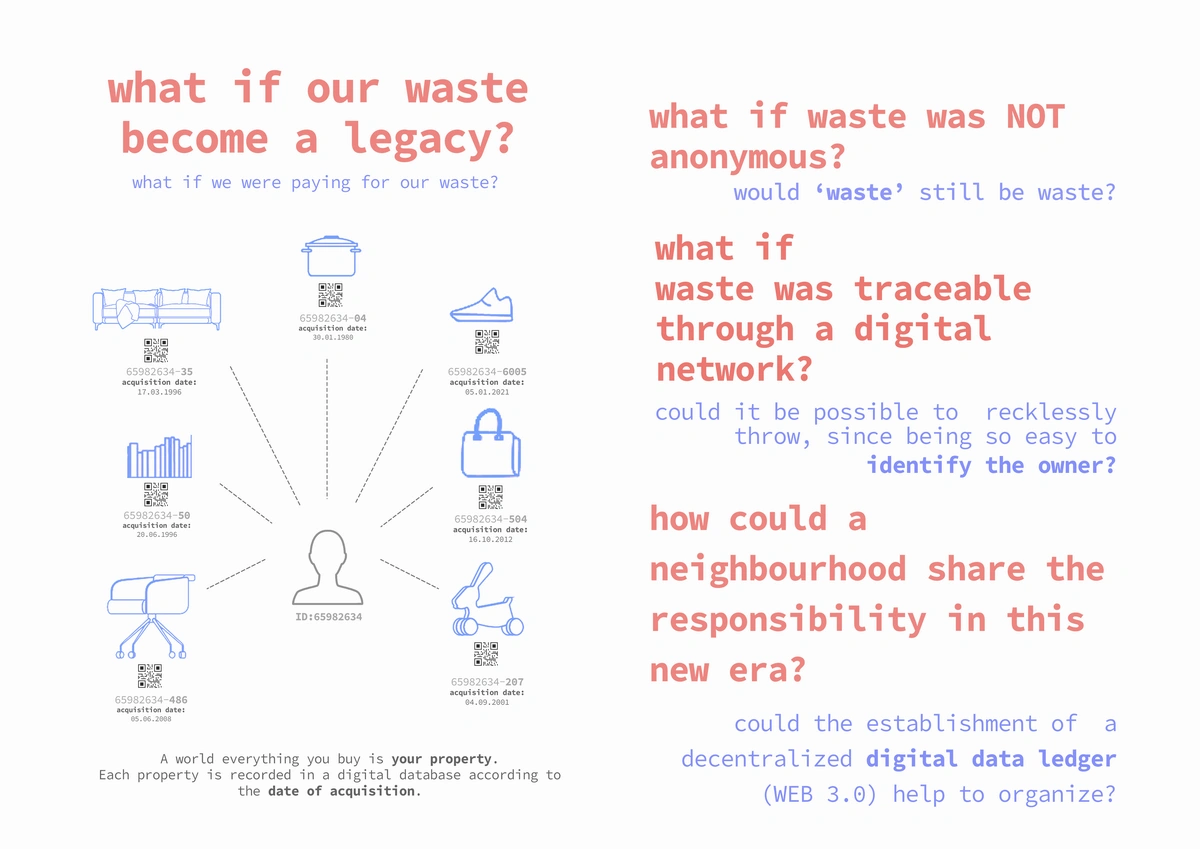
Speculative questions for the meaning of "waste".
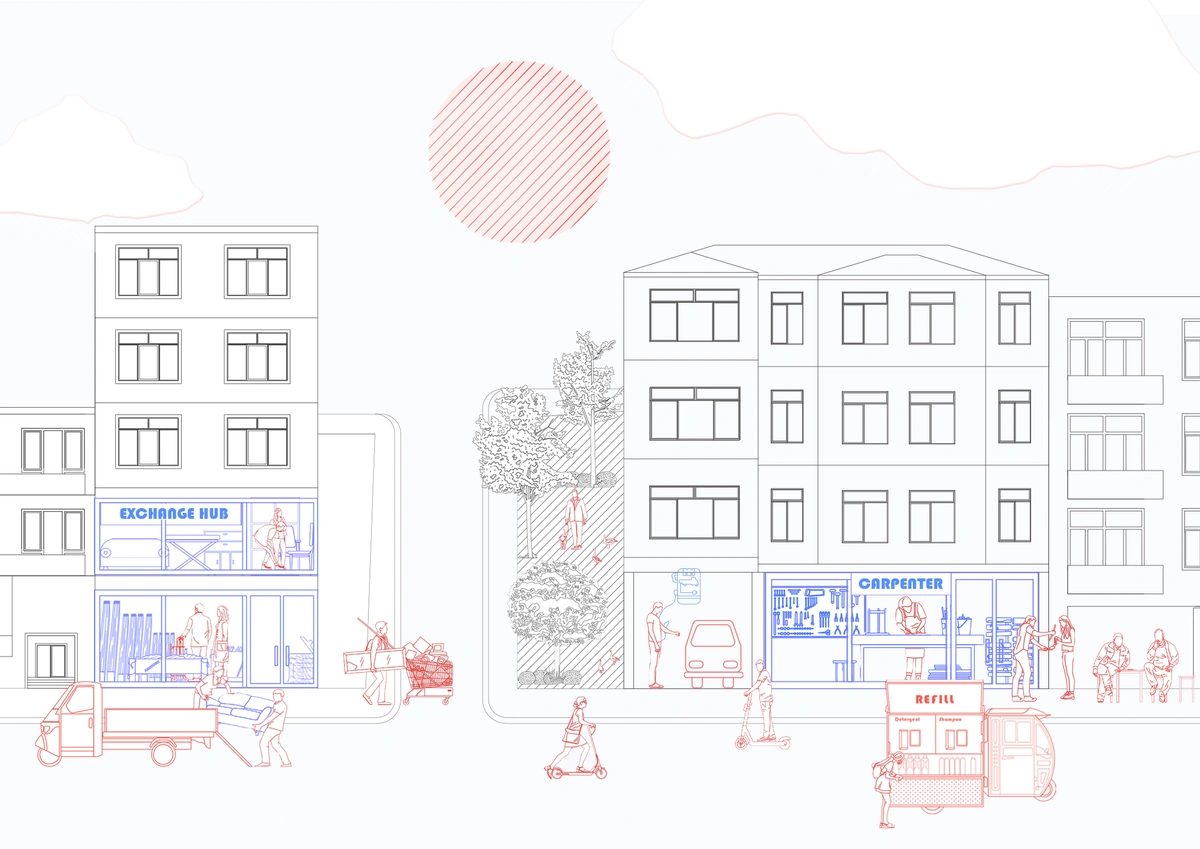
The scene from the neighborhood shows new collaboration places.
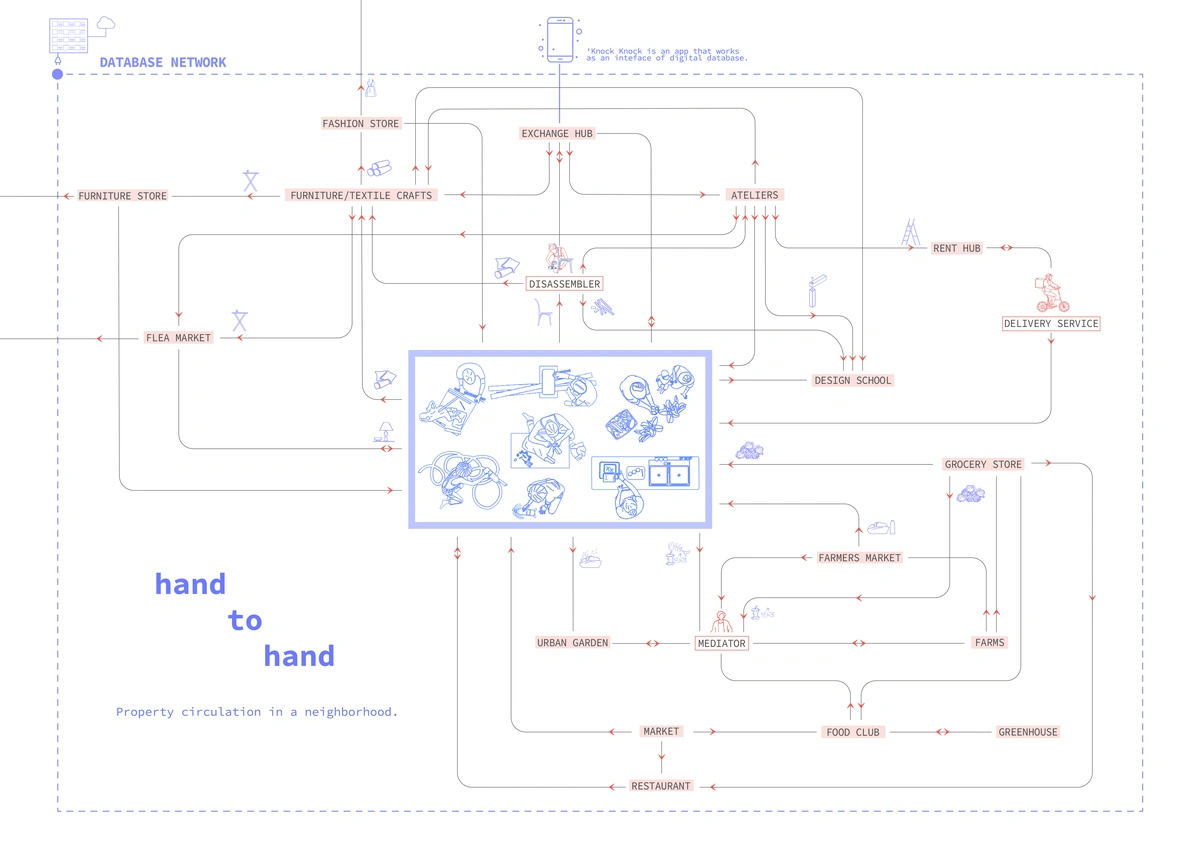
Collective network in cyclic management with the "waste" registration system.
Research team of Istanbul MEF University’s graduate programme ‘Alternative Architectural Practices’. The programme aims to create critical thinking perspectives about current issues. In this cycle the team focused on the topic “waste”. As a first step, the team published a research book based on Istanbul’s waste and global concerns which led them to think about the possibility of alternative strategies of dealing with waste, using architecture as a tool.
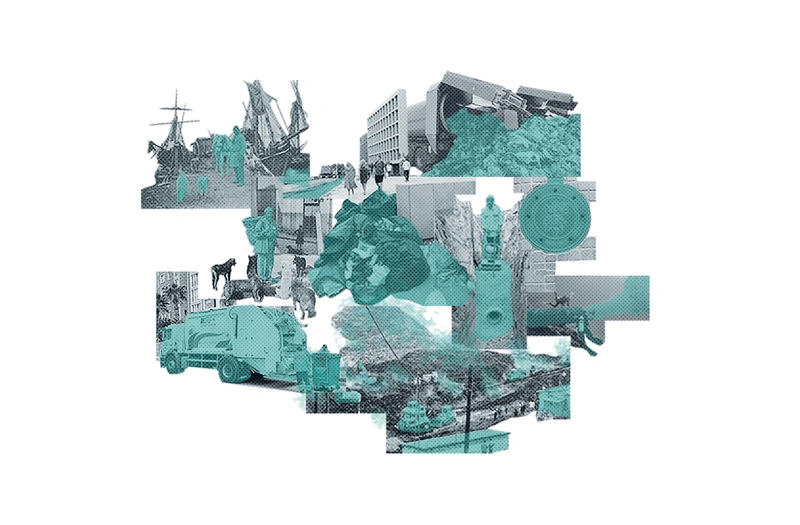
Waste Research Book from the first semester of the Alternative Architectural Practices Programme. Can be reached through the official website.
